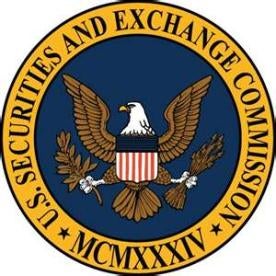You may have heard of the Yates Memorandum, which sets forth current Justice Department policy on corporate cooperation with criminal investigations. But the Securities and Exchange Commission has just announced another significant policy change, which hasn’t garnered the same attention: self-disclose or forfeit access to key favorable case dispositions.
Self-disclosure is now a requirement for DPA or NPA eligibility
During his keynote address at the SEC’s 33rd International Conference on the Foreign Corrupt Practices Act, Andrew Ceresney, SEC Director of the Division of Enforcement, announced that “going forward, a company must self-report misconduct in order to be eligible for the Division to recommend” a non-prosecution agreement (NPA) or deferred prosecution agreement (DPA).
Unlike the Yates Memo, which was largely a repackaging of previously articulated DOJ policy, Ceresney’s comments mark a clear change in the SEC’s approach. The SEC will “not even consider” a DPA or NPA if a company does not initially self-report.
Consequently, self-reporting is no longer merely one of several factors considered for lenient resolution of an SEC FCPA investigation. Rather, self-reporting is a threshold requirement for consideration for an NPA or DPA.
Ceresney explained that the SEC wants companies to know the benefits of cooperating are “significant and tangible.” In addition to DPA or NPA consideration, self-reporting may result in reduced charges or no charges when the violations are minimal. To that end, he listed several recent enforcement cases in which the SEC entered into settlements to “send the message loud and clear that the SEC will reward self-reporting and cooperation.”
As a result of the new SEC policy, issuers of securities on U.S. exchanges should re-evaluate their FCPA compliance approach. While self-disclosure to the SEC is still “voluntary” (i.e., there is no obligation to self-disclose wrongdoing to the SEC under the statute), it is now a condition for resolution by NPA or DPA.
Why the shift in policy?
According to Ceresney, the new policy aims to further develop the SEC’s formal cooperation program, which was instituted in 2010. Under that program, self-reporting has always been a critical aspect of the cooperation equation: the SEC recognizes that companies are in a better position than the Enforcement Division staff to investigate misconduct, particularly in foreign jurisdictions, so it rewards companies that undertake their own investigations and self-report the results. Ceresney evidently thinks not enough companies have taken the bait: he says he is “hopeful that this condition on the decision to recommend a DPA or NPA will further incentivize firms to promptly report FCPA misconduct to the SEC and further emphasize the benefits that come with self-reporting and cooperation.”
As if that’s not enough, what else is required beyond self-disclosure?
Ceresney noted that self-reporting alone is not enough to receive a DPA or NPA. The broad set of factors in the SEC’s 2001 Seaboard Report still govern how much credit the SEC gives for cooperation. The Seaboard report factors include self-policing, remediation, and cooperation in the investigation.
More SEC FCPA enforcement actions on the horizon
In addition to the new self-disclosure policy, Ceresney’s speech also forecasts other areas of enforcement escalation. First, SEC enforcement increased at both the individual and corporate levels during fiscal year 2015. The SEC filed 14 actions in fiscal year 2015 resulting in over $215 million in penalties, including one settlement of $135 million. Ceresney predicts fiscal year 2016 will be another “active” year for FCPA prosecutions. Ceresney also noted that globalization enables the SEC to coordinate efforts with international regulators and law enforcement. We can also expect the SEC to continue to encourage and incentivize whistleblowers.
More DOJ transparency and fewer DOJ enforcement actions
What more could you possibly want? Moving on from SEC FCPA actions, we will leave you with two pieces of promising news regarding DOJ FCPA actions. First, at the same FCPA conference, Assistant Attorney General Leslie R. Caldwell announced that the DOJ’s Criminal Division is prioritizing transparency for its charging decisions in corporate prosecutions. Increased transparency over time will provide new insights to help companies navigate complex compliance questions.
Second, DOJ enforcement actions have declined during the past year. Assistant Attorney General Caldwell hinted in her remarks at the New York City Bar Association’s Fourth Annual White Collar Crime Institute that the decline may be explained in part by the “serious consideration” the DOJ is giving to companies that fully cooperate. Moreover, the DOJ reportedly recently proposed a policy that strongly recommends declinations of criminal prosecution in certain instances of self-disclosure, possibly accompanied by forfeiture of profits from misconduct.
As a result of these trends, the calculus for deciding whether to voluntarily self-disclose FCPA misconduct has changed. The SEC’s approach utilizes a big new stick, and DOJ seems to be considering more carrots. But as always you must weigh multiple factors when determining whether to self-disclose, including the following:
-
how can the company best halt illegal conduct;
-
what is the risk of discovery outside the self-disclosure context (through whistle-blowing or other avenues);
-
what cooperation benefits may be anticipated;
-
how important is non-prosecution or deferred prosecution treatment;
-
what resources are available for investigation;
-
what will the scope of the investigation be with and without disclosure;
-
with disclosure in one jurisdiction, what enforcement and compliance consequences will follow in other jurisdictions?





 i
i

